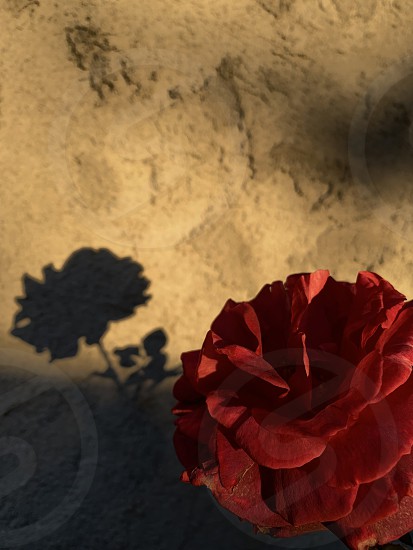FWP:
SETS == IDIOMS
This is the first of three verses in this ghazal-- the others are {80,8} and {80,9}-- that echo the refrain by repeating gul in the second line. The word and idea of the 'rose' is one of the most (if not the single most) highly charged concepts in the ghazal universe. To repeat it, in a way that both contrasts and compares the two uses, is an extraordinarily effective device. All three verses are lyrical and resonant, with sound effects as well as an extra sense of rhythm (though the rhythm is conspicuously different in each of the three cases). They all feel like verses of mood.
A shadow is dark or even black, and the intoxicated Rival is 'black-drunk', an idiomatic expression for extreme drunkenness. To take refuge in the 'shadow' or 'shade' of some powerful person also idiomatically means to receive that person's shelter or protection in general-- which works well with the the submission and humility shown by the drunkard.
The rose's shadow touches only the base of its stem, but cannot be detached from it; the intoxicated one, even in his drunkenness, presumes no further than to touch the rose/beloved's feet-- but to those feet he is as tightly bonded as is the rose's shadow to the rose-stem. (One of the traditional forms of extreme supplication is to humbly fall at someone's feet and then refuse to rise-- or even to release the victim's feet from one's grasp-- until one's request is granted.) And of course, if the intoxicated one appears at the beloved's feet as a supplicant, what more would be the object of his plea than to be allowed always to remain at the beloved's feet?
The verse is in Ghalib's favorite inshāʾiyah
mode, and its exclamatory force is of envy, admiration, even almost a form
of approval not usually accorded to the Rival (who in this case may also be a comrade or fellow-lover; the neologism 'frenemy' is perfect). For the intoxicated one would be acting as a true lover should; in fact he would obviously be acting the
way the lover himself longs to act. And after all the second line is in the habitual subjunctive ( rakhtā ho ), so the whole scene may (habitually) take place only in the speaker's fevered imagination.

Nazm:
That is, that fortunate 'black-drunk' one who would put his head on the feet of the beloved and present his longing. What can be said about his state? For the beloved the simile of a rose has been used, and for the lover the simile of the shadow of the stem of the rose. (81)
== Nazm page 81